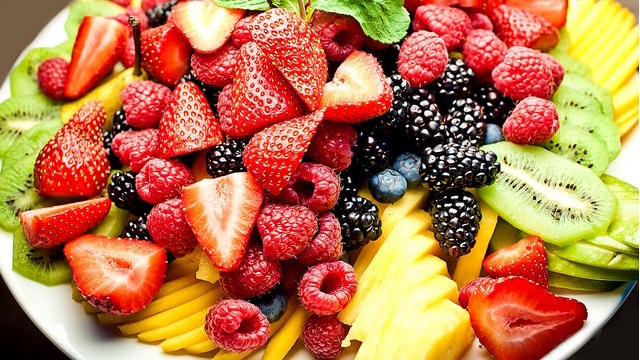A recent study reported that more than half of all runners will take nonsteroidal anti-inflammatory drugs (NSAIDs) such as ibuprofen or naproxen as a preventive measure before a race. The extent of this practice, reported by Doc Benoit in his column, may seem surprising, as does the fact that the associated benefits are only marginal or even non-existent. Moreover, NSAIDs increase the risk of gastrointestinal, renal or cardiovascular issues by up to five times among runners.
A question that follows: can food replace the consumption of NSAIDs? It can! Read on.
Anti-inflammatory effects of food
Omega-3 fatty acids derived from fish are among the nutrients with the most recognized anti-inflammatory effects. However, the North American diet is commonly deficient in this nutrient. Some experts suggest that supplementing one to two grams of marine-based omega-3 fatty acids per day could induce anti-inflammatory effects and reduce muscle pain, including pain related to exertion. Although studies in humans are at this time inconclusive, considering the beneficial effects of such supplementation for people with inflammatory conditions like rheumatoid arthritis, it is reasonable to suggest that athletes may benefit from these.
Also, you do not need to depend on supplements to incorporate anti-inflammatory compounds into your diet. Eating fatty fish (trout, salmon, herring, etc.) regularly provides a lot of omega-3. In addition, nuts, berries and colorful vegetables, such as kale and tomatoes, are all rich in antioxidant and anti-inflammatory compounds. There are undoubtedly many more health benefits associated with eating a diet of fresh, unprocessed foods rich in fruits and vegetables, and if they contribute to a decrease in exercise-induced inflammation.

Adverse effects of food?
The side effects of healthy eating are as follows: …
(No, this is not a mistake. Healthy eating has no side effects!)
That being said, the exclusion of dairy or gluten from the diet, for their supposed pro-inflammatory effects, are common dietary practices in the sports world. It is essential to note that clinical studies on dairy products have not measured any effect on inflammation. In regard to gluten, except for a medical indication of allergy or intolerance, its exclusion from the diet does not necessarily provide more benefits than its inclusion.
Pill or diet?
To reiterate, the scientific evidence to support the benefits of healthy eating in preventing pain or inflammation in runners is inconclusive. But remember that the benefits of NSAIDs are themselves marginal or non-existent.
NSAIDs can have a negative impact on your gut, kidney and cardiovascular health. Healthy eating, on the contrary, will have beneficial effects. Doesn’t healthy eating seem much more promising to you too?
Healthy eating transcends the prevention of chronic diseases and contributes to sports performance. I am repeating myself, but when it comes to sports, it is important to give as much importance to nutrition as to training, rest, recovery and stress management. These elements form a whole and if one is deficient, the benefits of the others will be sub-maximal. Pills will not work miracles.
If you are injured, I invite you to follow the advice of our good Doc Benoît and to consult a professional before turning to medication … while continuing to eat well!
Translation : Caroline Beaton
Jean-Philippe is a registered-dietician, member of the Professional Order of Dietitians of Quebec, and assistant professor at Laval University in Canada.
Must Read :
- How Your Gut Microbiota Will Make You a Better Runner
- Beware, alcohol affects fitness!
- What and How to Eat the Four Days Before a Big Race


